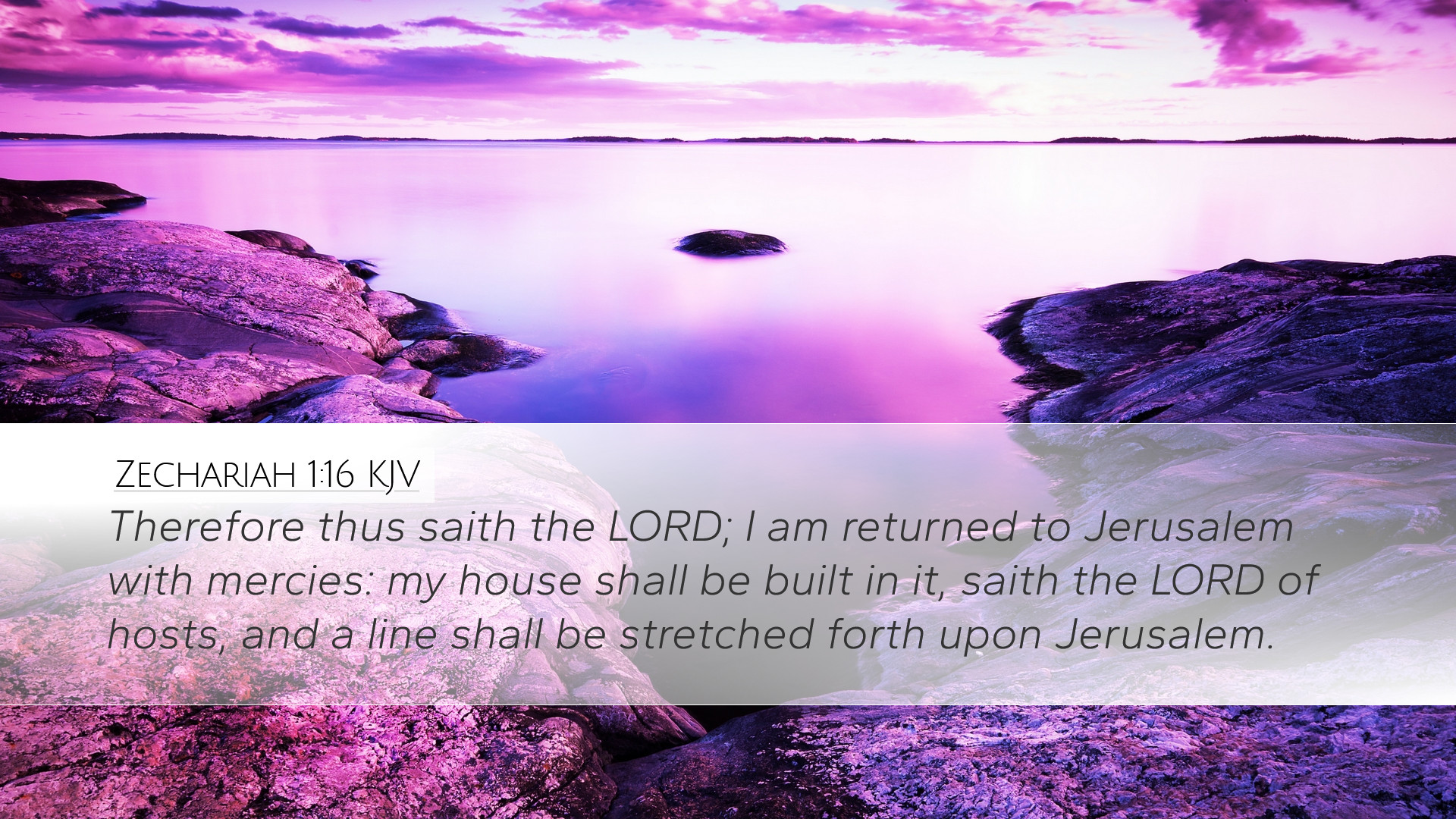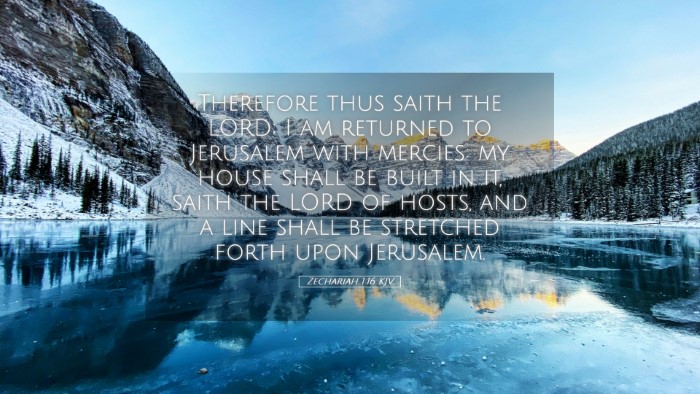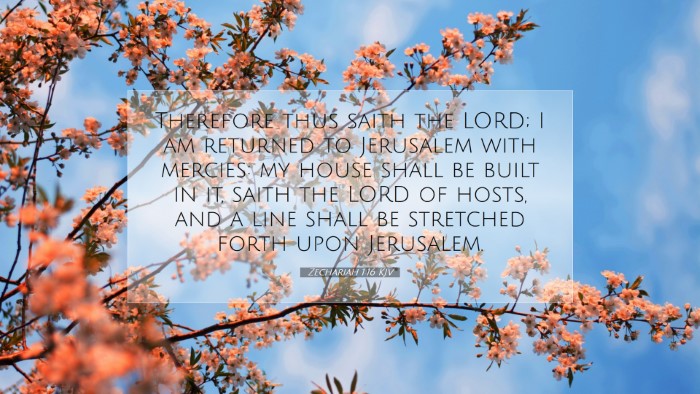Commentary on Zechariah 1:16
Zechariah 1:16 states: "Therefore thus saith the Lord; I am returned to Jerusalem with mercies: my house shall be built in it, saith the Lord of hosts, and a line shall be stretched forth upon Jerusalem." This verse serves as a powerful affirmation of God's renewed presence and commitment to His people in a time of restoration. This commentary collects insights from various public domain resources to provide a comprehensive understanding suitable for pastors, students, theologians, and Bible scholars.
Context and Historical Background
The book of Zechariah was written during the post-exilic period when the Israelites were returning from Babylonian captivity. The temple in Jerusalem had been devastated, and the people were struggling to rebuild their lives. Zechariah, a contemporary of Haggai, prophesied to encourage the people to complete the construction of the temple and reaffirm God's covenant relationship with Israel.
Exegesis of the Verse
This verse can be divided into two main parts: God's declaration of His return and the promise of restoration.
1. God's Declaration of Return
"I am returned to Jerusalem with mercies" signifies a dramatic shift from judgment to favor. Matthew Henry emphasizes that God’s return reflects His unchanging nature and the fulfillment of His covenant promises. Albert Barnes elaborates that this statement of return indicates God's readiness to bless His people once more, highlighting His mercy that transcends their previous disobedience and the judgment they faced.
2. The Promise of Restoration
Following God’s return, He declares, "my house shall be built in it". Adam Clarke notes that the reference to "my house" pertains directly to the temple, which symbolizes God's dwelling place among His people. This restoration is not merely physical; it represents the rebuilding of the spiritual life and community of the Israelites. Henry further posits that this promise of reconstruction points to the establishment of a society where God's presence is acknowledged and worshipped.
3. The Line Stretched Forth
The phrase "a line shall be stretched forth upon Jerusalem" is emblematic of divine measurement and assurance. Barnes states that such a line represents God's approval of the city’s dimensions and a promise of prosperity and protection. This suggests that God's plans for Jerusalem will be fulfilled and supported, indicating a time of peace after turmoil.
Theological Implications
Zechariah 1:16 holds significant theological implications relevant to the faith community.
1. God’s Faithfulness
The assurance of God's return illustrates His unwavering faithfulness. Despite the Israelites' unfaithfulness, God's mercy remains. This reflects a central theme in Scripture, where God continually seeks to restore His people.
2. Restoration and Hope
This verse is rich with themes of restoration and hope. It invites believers to look forward to God’s redemptive plans. Clarke points out that it encourages an expectation of divine intervention and renewal even in seemingly desolate circumstances.
3. The Importance of the Community
As God emphasizes rebuilding “my house,” it highlights the importance of community worship and the collective identity of God's people. The restoration of the temple signifies the re-establishment of communal worship and the reclaiming of space where God and His people interact.
Practical Applications
For modern readers—pastors, theologians, and laypeople alike—the insights gleaned from Zechariah 1:16 can be practically applied in various ways.
- Encouragement in Leadership: Pastors may draw from this promise of restoration to motivate their congregations, emphasizing that God's plans often come to fruition amidst challenges.
- Community Restoration: Community leaders can find inspiration in the commitment to rebuild together, fostering unity and collaboration in their own communities.
- Hope for the Future: This verse assures individuals of God’s ongoing mercy, encouraging them to trust in God’s presence in their lives.
Conclusion
Zechariah 1:16 is a declaration of hope and renewal. God’s promise of returning to Jerusalem and the rebuilding of His house reassures the faithful of His enduring mercy. It challenges the community to recognize their role in the process of restoration and encourages a collective expectation of God's continued faithfulness.


